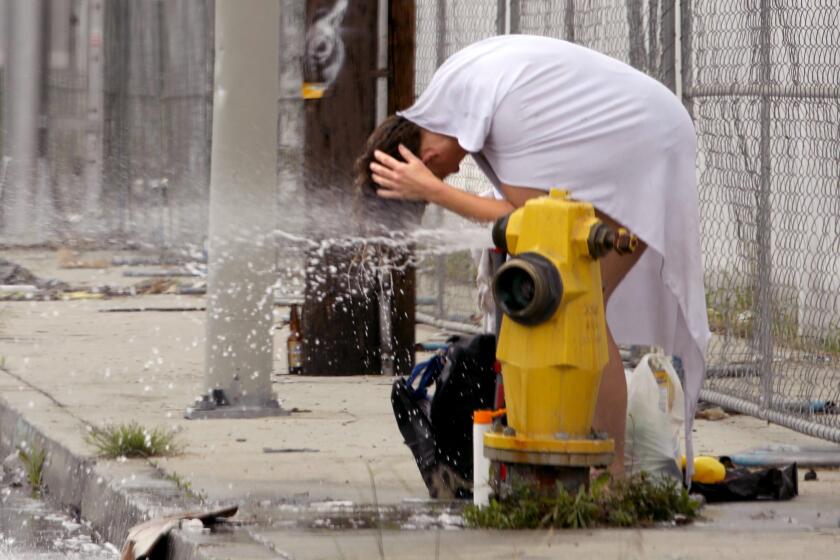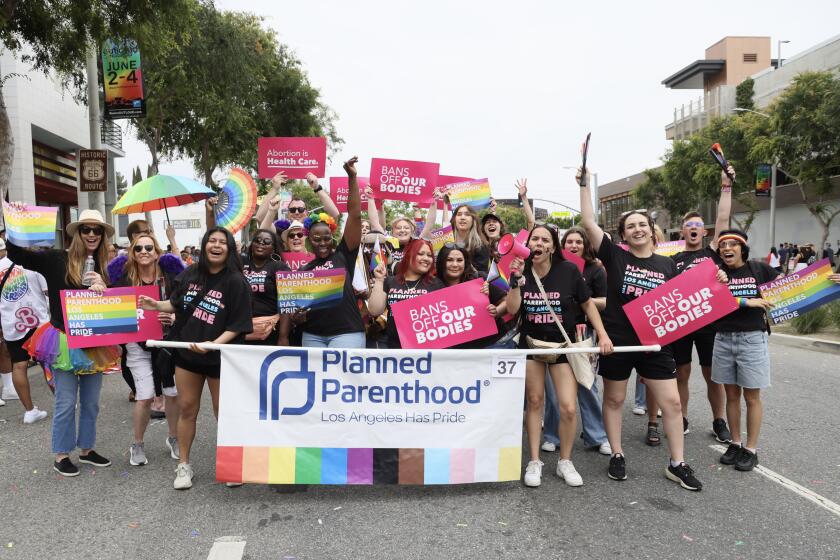Calm, cordial, still deadly
The 20-year anniversary of the beating of Rodney King passed pretty much unnoticed in Jordan Downs.
I visited the Watts housing project this weekend because I was curious about King’s legacy in a neighborhood where, 20 years ago, everybody seemed to know someone who had been roughed up King-style by the cops.
Was King a hero or a hapless victim? Had the events set in motion by his videotaped beating — from street riots to police reform — changed life much in this beleaguered corner? Or was King nothing more than a bit player in a still evolving drama?
Some of the people I talked to knew more about King’s recent stint on “Celebrity Rehab” than his starring role in the cops-gone-bad episode from 20 years ago. Others told me I was wasting my time trying to wring some kind of lesson out of the saga:
“Don’t nobody around here give a … about Rodney King!” was how Fred “Scorpio” Smith put it — louder and more colorfully than I can convey in a newspaper column.
King is not a symbol of anything, he said. He was just a guy driving drunk, dumb enough to try to outrun the cops. Getting busted then beaten up? That was par for the course back then.
“He got his ass whipped. He got his money. And he did nothing with it to help anybody,” said Smith, a former gang banger who grew up in Jordan Downs. He now works with the city’s gang prevention efforts and runs an education program for high school dropouts.
Back in 1994, King won a $3.8-million settlement in his lawsuit against the city. “Did you see any of that money make its way down here to them?” Smith asked me, gesturing toward a cluster of young men ambling down the alley and a boy pedaling by on a bicycle, pulling a little girl on roller skates behind him.
“Rodney King don’t mean nothing down here. There was a lot he could have done, but didn’t,” Smith said.
Listening as he watered his lawn, Eddie Louis nodded in agreement. The 68-year-old retired janitor raised nine children in the projects. He’s lived in Jordan Downs for more than 40 years, “on the good side of the project,” he tells me.
He remembers being more surprised by the public outrage over King’s beating than by the images caught on camera. “It didn’t tell us nothing we didn’t already know,” Louis told me, aiming his water hose at a bank of flowers.
His teenage grandson and a buddy strolled over, and I asked them about Rodney King.
There’s a picture of Rodney King in the hallway at Jordan High next door, one boy offered. “It has that thing underneath, ‘Can we all get along?’” Both boys laughed.
They couldn’t remember talking about King in school. But they learned about the riots, he said. In history class. “All that happened before I was born. So I don’t really remember much about it.”
::
They may be too young to know how much has changed, but Louis isn’t. It’s calmer in the neighborhood these days, and the police roll through more often.
Relations are largely cordial, he said; at least with the veteran officers. “The new ones are a little rude; they’ll try to raise their voice — ‘C’mon over here!’ I tell ‘em ‘If you want to get some answers out of me, you talk to me like you got some sense.’ They want the cooperation, they’ve got to treat you with respect.”
Several residents I spoke with offered grudging praise for the Los Angeles Police Department. Some officers are still too quick to roust or harass young men, “like standing around is a crime,” Louis said. But the commanders at the nearby Southeast Division seem genuinely interested in listening and handling complaints, they said.
Crime has dropped dramatically, especially since security cameras were installed to provide surveillance of project lots and yards.
“It’s a shame you have to live being watched by cameras all day,” said Louis, who remembers when the complex was so safe “you could go indoors and leave your car unlocked, you could sleep with your windows open, you could leave a case of beer on your doorstep and it would still be there in the morning.”
These days — crime stats aside — you might not get from your parking spot to your front door alive.
Louis pointed down the alley toward the parking lot. A neighbor was shot and killed there while unloading groceries from his car one evening not long ago, he said. “They were trying to rob him, I guess.” Nobody saw anything, he said. And the camera that was trained on the parking lot, to keep people from breaking into cars, was apparently turned off.
He walked me across the street to peer at a spot between two trees where police shot a young man on a bike on Christmas morning. They said he’d threatened his girlfriend and was riding around with a high-powered rifle. An assault weapon was recovered from the scene.
Everybody knew the young man, Louis’ grandson told me. And nobody believes he had a gun.
Louis showed me the camera mounted on a light pole, aimed directly at the spot where the young man died. “Unfortunately, the camera wasn’t working that day,” he said.
City officials have promised to get them working. “They said they’re going to put up 13 more cameras,” he said. “But I imagine they just ‘won’t work’ when something happens that they don’t want you to see.”
More to Read
Start your day right
Sign up for Essential California for news, features and recommendations from the L.A. Times and beyond in your inbox six days a week.
You may occasionally receive promotional content from the Los Angeles Times.




